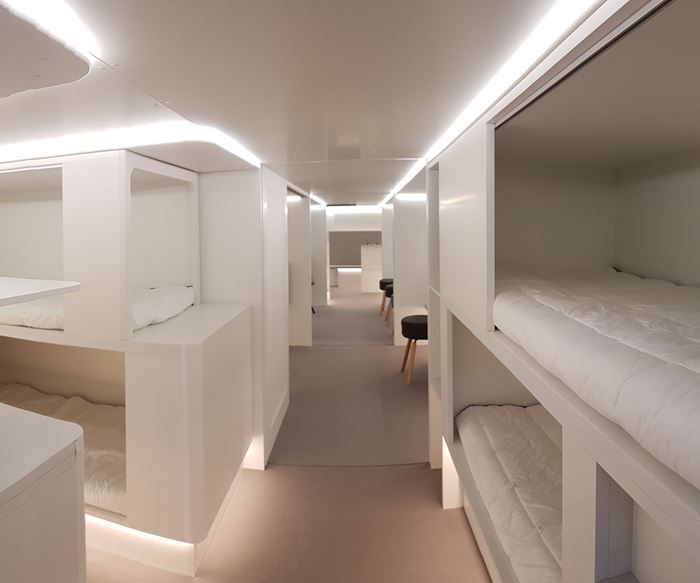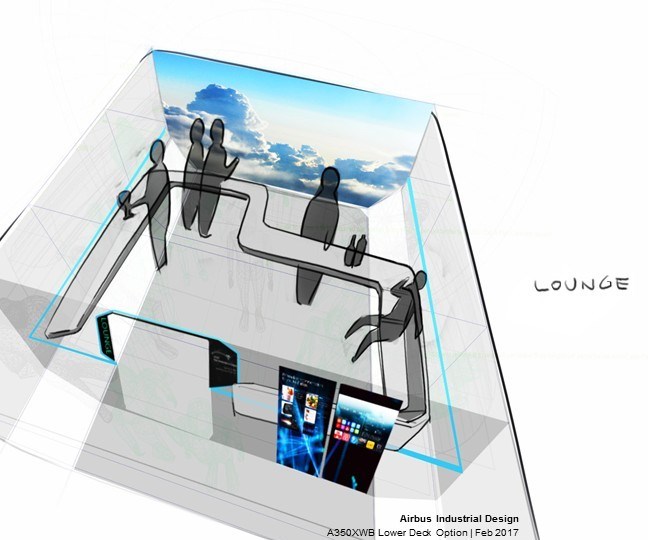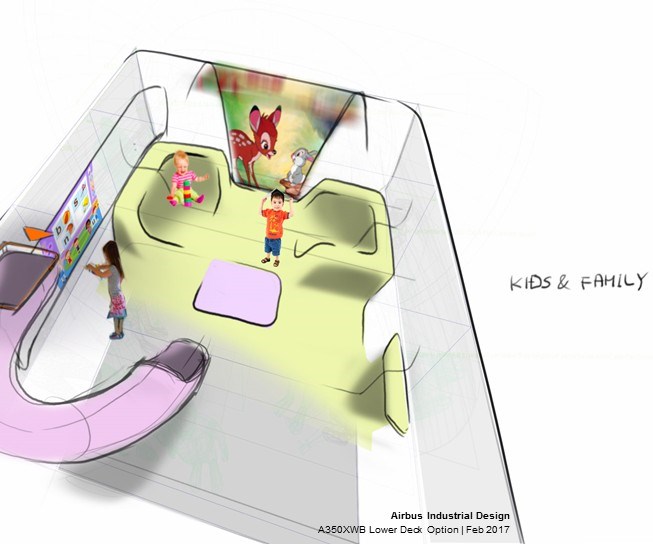Airbus and Zodiac Aerospace partner on passenger sleeping facilities
The modules, which would fit inside the aircraft’s cargo compartments, offer new opportunities for additional services to passengers.
Airbus (Toulouse, France) and Zodiac Aerospace (Plaisir, France) announced April 10 a partnership to develop and market lower-deck modules with passenger sleeping berths. The modules, which would fit inside the aircraft’s cargo compartments, offer new opportunities for additional services to passengers, improving their experience while enabling airlines to differentiate and add value for their commercial operations. The new passenger modules will be easily interchangeable with regular cargo containers during a typical turnaround if required. Moreover, the aircraft’s cargo floor and cargo loading system will not be affected at all, as the passenger module will sit directly on it.
Christophe Bernardini, CEO of Zodiac Aerospace Cabin Branch says, “We are delighted to work with Airbus on this new and innovative project, which reaffirms our expertise in lower-deck solutions. An improved passenger experience is today a key element of differentiation for airlines.”
Geoff Pinner, head of Airbus Cabin and Cargo Programme says, “This approach to commercial air travel is a step change towards passenger comfort. We have already received very positive feedback from several airlines on our first mock-ups. We are pleased to partner with Zodiac Aerospace on this project which will introduce a new passenger experience and add value for airlines.”
Airlines will be initially be able to choose from a catalogue of certified solutions by 2020 on A330 for retrofit and line-fit markets. Offerability of sleeper compartments on the A350 XWB airliner is also being studied. The innovation builds on both Airbus’ and Zodiac Aerospace’s experience in producing and integrating lower-deck crew-rest facilities.
Related Content
-
ASCEND program update: Designing next-gen, high-rate auto and aerospace composites
GKN Aerospace, McLaren Automotive and U.K.-based partners share goals and progress aiming at high-rate, Industry 4.0-enabled, sustainable materials and processes.
-
Combining multifunctional thermoplastic composites, additive manufacturing for next-gen airframe structures
The DOMMINIO project combines AFP with 3D printed gyroid cores, embedded SHM sensors and smart materials for induction-driven disassembly of parts at end of life.
-
The potential for thermoplastic composite nacelles
Collins Aerospace draws on global team, decades of experience to demonstrate large, curved AFP and welded structures for the next generation of aircraft.
















